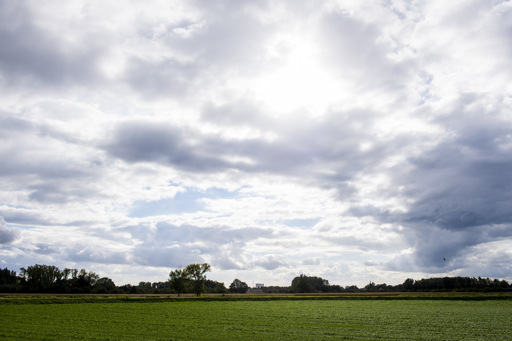In the last few years, Flanders has increasingly been reallocating land that was reserved for industrial or residential purposes and classifying it as open space instead.
Between 2014 and 2019, some 646 hectares of open space in Flanders disappeared, being transformed for other purposes. However, this trend was reversed in 2019, when the Dutch-speaking region increasingly started allocating more area to be classified as open space, figures from the Department of the Environment showed.
"An important evolution and the way forward. The importance of space for water and greenery was misunderstood for far too long, but that has clearly and rightly changed in recent years," Flemish Environment Minister Zuhal Demir told Belga News Agency.
Open spaces that safeguard soil can better perform the many functions that maintain the ecological balance. Ground that has been "hardened" (among others through the construction of pavements, terraces, driveways, and artificial grass), seals off the soil, meaning all those functions are lost.
In the context of climate change, preserving the functions of soil and open space is vital, as this allows more water to seep into the soil, which helps combat flooding as well as drought.
Continuing trend
Industry terrain is not being demolished for this purpose, but instead, land that was originally reserved as an industrial or residential area is being reallocated to nature, forest or agriculture.
Demir recently announced such a project, which will see a storage basin for three to four million cubic metres of water being created on the Zwaaikom site in Ranst, in the province of Antwerp, instead of an industrial site.
Related News
- Two-thirds of Flemish municipalities have at least one cycle-friendly street
- Flanders refuses permit for region's 'biggest real estate project'
This trend is expected to continue in the coming years, as the regional government decided that local authorities will no longer receive subsidies for their municipal spatial implementation plans if these lead to the additional occupation of open space, meaning it will become less attractive for them to promote the reallocation of such sites.
In the next parliamentary year, Demir will also come up with a decree that ensures neutrality, meaning that local governments will only be able to convert open space to residential or industrial use if at least as many "hard surfaces" are scrapped at the same time.

